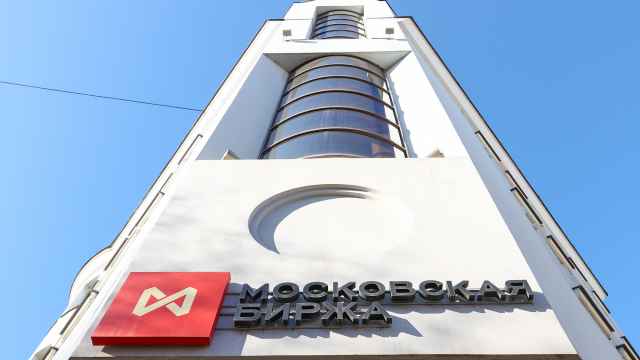The 755 staff forced to leave the U.S. embassy by President Vladimir Putin may seem to have little to do with private companies wishing to invest in Russia. But in reality, they’re closely linked.
Putin’s decision last month may be just the first response to new U.S. sanctions against Russia, signed by President Donald Trump on Aug. 2.
Some commentators have underplayed the immediate effects of these sanctions. But international companies planning to invest in Russia or already doing business there now face more uncertainty. And six months from now, a ticking bomb wrapped in 184 pages of U.S. legalese will start counting time for some investors.
One of the provisions in the U.S. sanctions law requires the U.S. Secretaries of Treasury and State and the Director of National Intelligence to submit to Congress a detailed report on senior Russian political figures and businesspeople close to Russia’s ruling elite.
This report is to contain information on the size and sources of these individuals’ wealth, as well as the wealth of their siblings, parents, spouses and children, any indications of corruption, and, importantly for potential business partners of these individuals, identification of their non-Russian business affiliations.
The report will also assess the impact of imposing sanctions against these individuals on their wealth, on the Russian economy and on the economies of the United States and its allies.
Sanctions against Russia have so far targeted only a handful of top businessmen widely considered close to Putin, in addition to a range of companies. This report — to be updated annually and publicly accessible — is effectively a potential sanctions hit list, although the law does not say that those individuals under scrutiny will automatically be sanctioned.
Sanctions are meant to hurt the country on which they are imposed. That means anyone doing business with that country faces potential trouble too. Previous sanctions by the United States and the European Union arguably caused more headache for U.S. and European firms than for Russia. This new provision means Western firms may find their previously ‘safe’ business partner suddenly and unexpectedly under sanctions.
It is “like a Sword of Damocles over [European companies],” Michael Harms, managing director of the German Committee on Eastern European Economic Relations, told German newspaper Die Zeit before the law was passed.
Putin came to power 18 years ago and has built a personally managed state capitalist economy. Finding a prominent Russian businessperson who has not engaged in some way with the country’s senior decision-makers would be a daunting task. And it is exactly these individuals with whom many foreign companies partner, in one way or another. So what are investors who see opportunity in the Russian market but are unsure how to manage this new unpredictability to do?
As a first step, international companies should step up due diligence. While ‘know your partner’ checks may seem dull, they are the best safeguard against unwitting involvement with sanctioned individuals or companies. International companies will have to know their partners and supply chains better and be able to demonstrate to international regulators that they have done everything possible to obtain information about them should they find themselves under the regulatory spotlight for sanctions violations.
Investors can also focus on sectors that are less penetrated by government-friendly executives. Sectors such as retail, agriculture and pharmaceuticals are fertile soil for international companies, with many firms growing rapidly despite the economic stagnation Russia has endured over the past few years.
Agriculture, in particular, is now an attractive opportunity. Consulting firms are already receiving more inquiries from agricultural companies that hadn’t previously considered investing in Russia.
Sanctions are an undeniable hassle to companies operating internationally, but also offer perhaps unexpected opportunities. Companies willing to conduct robust due diligence and pursue politically safer opportunities may find themselves reaping the benefits of a less competitive playing field.
Russian agricultural companies will be eager to talk to them.
Elisabeth Braw is a Senior Consultant at Control Risks, a global risk consultancy. Nabi Abdullaev is an Associate Director at Control Risks and a former editor-in-chief of The Moscow Times.
The views and opinions expressed in opinion pieces do not necessarily reflect the position of The Moscow Times.
A Message from The Moscow Times:
Dear readers,
We are facing unprecedented challenges. Russia's Prosecutor General's Office has designated The Moscow Times as an "undesirable" organization, criminalizing our work and putting our staff at risk of prosecution. This follows our earlier unjust labeling as a "foreign agent."
These actions are direct attempts to silence independent journalism in Russia. The authorities claim our work "discredits the decisions of the Russian leadership." We see things differently: we strive to provide accurate, unbiased reporting on Russia.
We, the journalists of The Moscow Times, refuse to be silenced. But to continue our work, we need your help.
Your support, no matter how small, makes a world of difference. If you can, please support us monthly starting from just $2. It's quick to set up, and every contribution makes a significant impact.
By supporting The Moscow Times, you're defending open, independent journalism in the face of repression. Thank you for standing with us.
Remind me later.







